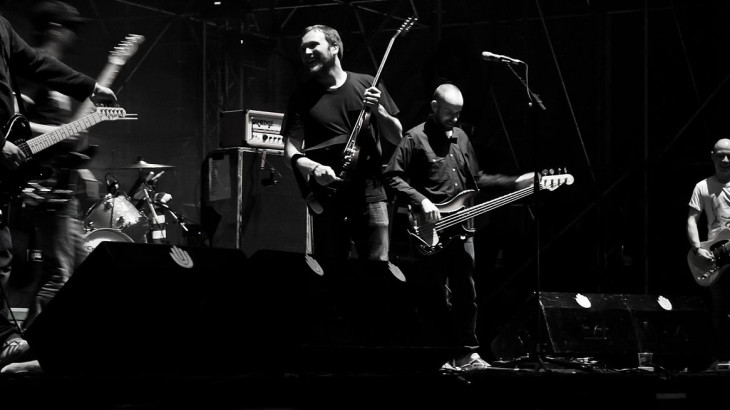It’s no secret that music can be emotional. Music can be used to tell a story, to capture an emotion as it is felt, and to make others feel as the musician felt. It can be used to intensify a feeling, a mood.
Post-rock is a genre that knows this, and harnesses it to its full advantage. The long, sweeping tracks lend themselves to comparison with classical music, but the heavy distortion that wraps many of the guitars ensure that post-rock is something truly unique. It’s classical music structure with modern instruments.
The emotions mostly present in post-rock are, as angsty as it sounds, anger and sadness. But not the clichéd, on-the-nose sadness and angst in other genres. Post-rock is more nuanced, subtler. The lack of lyrics in much of the genre means the emotions have to be conveyed through the music. This makes the emotions felt much more intense, much more personal. And much, much more devastating.
Here’s three of our favourites.
Killing All The Flies, by Mogwai
Probably the most devastating track for me personally, this track had me break down crying in the middle of a street last year. There is something about the vocoder wailing combined with the sheer power of the instrumentation that packs a massive punch. Starting from a single, almost silent guitar, it slowly builds, but holding back. Mogwai have always been great at restraint, and Killing All The Flies is no exception. There’s pain the singer’s voice, so when he finally gives into the instruments, the impact is flooring. Listen to it below, and be prepared to feel something truly special.
Ágætis Byrjun, by Sigur Rós
Sigur Rós’ Icelandic vocals on this track pull the focus away from the instrumentation, but Jónsi’s melancholic wailing thinly veil depressing thoughts. Coming towards the end of the band’s most famous (and arguably best) album of the same name, Ágætis Byrjun is an ode to the type of sadness that comes with exhaustion. It’s a beautiful track, and you can listen below.
Challenger Parts 1&2, by We Lost The Sea
We Lost The Sea’s latest album Departure Songs is a phenomenal album from start to finish. It’s their first instrumental record, coming after they lost their lead singer Chris Torpy to suicide. They wrote the album off the back of tragedy, and they created something beautiful. I can’t recommend the album as a whole enough, but the two closing tracks are the ones that standout for me. It’s safe to assume that the majority of the western world is aware of the Challenger Disaster, the largest failing of the United States Space Program, where 7 brave men and women lost their lives. Challenger (both parts) deal with this disaster. The first part is the more substantial of the two, clocking in at just under 24 minutes. It opens with quotes from William S. Burroughs on dreams, with an unsteady drone behind. The tension in palpable; you know this isn’t going to end well. And it doesn’t, but it also ends perfectly. The tail end of part one is defined by the heavy distortion, thick with frustration. It’s reminiscent of a shuttle launch in power, and the finale of the track is audio from directly after the disaster, with onlookers expressing their disbelief. “They were here and now they’re gone,” one woman repeats, grief pouring from her voice.
Part two is a more personal track, written by the band in part as an encore to Challenger Part 1, but also as an epilogue to the album as a whole. It’s quieter, a reflection on the brave sacrifices of all the stories laid out in the past hour of music. The closing of this track still gives me chills, and I’ve listened to it so many times I’ve lost count. Reagan’s speech following the disaster is a powerful and haunting reminder that humanity is flawed, and progress comes with risks. I challenge anyone to not feel something, anything, when the silence sets in following his speech.
Image: Wikipedia

